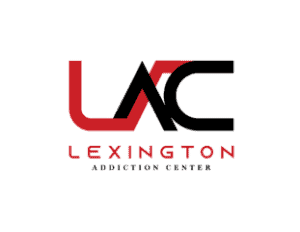Navigating Codependency in Relationships: A Guide from Lexington Addiction Center
Codependency is often called the “silent partner” of addiction. It’s a pattern of unhealthy behaviors where a person sacrifices their own needs and well-being to support someone else’s struggles—often unknowingly. This dynamic is particularly common in relationships affected by substance use disorders. While rooted in love and care, codependency can perpetuate addiction and prevent both parties from healing.
At Lexington Addiction Center, we recognize how deeply intertwined codependency and addiction can be. Our programs not only focus on helping individuals break free from substance use but also on equipping families and loved ones with the tools to build healthier, more balanced relationships.
This comprehensive guide will help you understand codependency, recognize its signs, and take meaningful steps toward recovery.
What is Codependency?
Codependency is a behavioral pattern where one person consistently prioritizes another’s needs above their own, often at the cost of their mental, emotional, and physical health.
According to Mental Health America, codependency is a learned behavior that can be passed down through generations. It’s common in families where addiction, abuse, or chronic illness is present.
Signs of codependency include:
- Difficulty setting boundaries
- A deep need for approval or validation
- Neglecting personal needs
- Feeling responsible for others’ emotions or actions
- Fear of abandonment or rejection
In relationships affected by addiction, this can lead to enabling—protecting a loved one from the consequences of their substance use, which inadvertently allows the cycle to continue.
The Link Between Codependency and Addiction
Codependency and addiction often form a destructive cycle:
- The individual using substances relies on their loved one for financial, emotional, or logistical support.
- The loved one provides this support, believing they are helping.
- The support unintentionally removes the natural consequences of substance use, reducing motivation to seek help.
This dynamic is damaging for both people involved. The person struggling with addiction is shielded from accountability, while the codependent partner may experience:
- Anxiety, depression, or emotional burnout
- Low self-esteem
- Resentment and frustration
- Social isolation
A 2024 study published in Addictive Behaviors Reports found that codependent family members often exhibit high levels of stress and health issues due to their caregiving role.
Recognizing the Signs of Codependency in Relationships
Awareness is the first step toward change. You may be in a codependent relationship if:
✔️ You make excuses for your partner’s substance use or behavior.
✔️ You feel guilty when putting your needs first.
✔️ You take responsibility for their actions and emotions.
✔️ You struggle to say “no” even when overwhelmed.
✔️ You enable their addiction by providing money, shelter, or covering up consequences.
In many cases, these behaviors stem from love and fear—love for the person struggling and fear of conflict, abandonment, or worsening the situation. But without intervention, codependency can prevent healing on both sides.
The Impact of Codependency on Recovery
Enabling behaviors keep individuals stuck in the addiction cycle. When a loved one continually rescues them—whether by bailing them out of legal trouble, paying bills, or excusing poor behavior—they lose the opportunity to recognize the severity of their situation.
This isn’t just harmful to the person with addiction. For the codependent, the constant caretaking can lead to:
- Emotional exhaustion
- Loss of personal identity
- Physical health issues like insomnia or high blood pressure
- Relationship strain with other family members or friends
Recognizing these effects underscores why breaking free from codependency is crucial for both parties’ recovery.
Steps to Overcome Codependency
Healing from codependency takes time, self-awareness, and support. Here’s how to begin:
1. Acknowledge the Problem
Admitting there’s a pattern of codependency is challenging but necessary. Journaling or speaking with a therapist can help you reflect on your behaviors and their impact.
2. Educate Yourself
Learn about codependency and its connection to addiction. Resources like Co-Dependents Anonymous (CoDA) provide valuable insights and support【³】.
3. Set Healthy Boundaries
Boundaries are not about cutting someone off—they’re about defining what is and isn’t acceptable for your well-being. Examples include:
- Refusing to give money for substances or bailouts
- Not covering up legal or social consequences
- Saying no to unhealthy requests
4. Focus on Self-Care
Prioritize your mental and physical health. This might include therapy, exercise, hobbies, or spending time with supportive friends.
5. Seek Professional Help
Therapies like Cognitive Behavioral Therapy (CBT) and family counseling can address codependency patterns. At Lexington Addiction Center, our therapists are trained to help families navigate these complex dynamics.
Healing Together: Family Support at Lexington Addiction Center
At Lexington Addiction Center, we believe addiction recovery is a family affair. Our programs include:
- Family Therapy: Guided sessions to rebuild trust and address unhealthy patterns.
- Education Workshops: Teaching families about addiction, enabling, and codependency.
- Aftercare Planning: Providing continued support as families transition to healthier dynamics.
Our compassionate approach ensures that both individuals with addiction and their loved ones have the tools they need to heal and thrive.
Real Stories: Breaking Free from Codependency
One client shared:
“I thought I was helping my son by bailing him out of every situation, but I was keeping him sick. Lexington Addiction Center taught me how to set boundaries with love. Today, he’s thriving in recovery—and so am I.”
Stories like this remind us that with the right support, families can break free from cycles of codependency and addiction.
The Road Ahead: Freedom Is Possible
Codependency is a heavy burden, but it’s not a life sentence. By recognizing unhealthy patterns and seeking help, you can create healthier relationships and support your loved one’s recovery without losing yourself in the process.
At Lexington Addiction Center, we’re here to guide you every step of the way. Whether you’re struggling with addiction or codependency—or both—our holistic programs are designed to help you heal and grow.
📞 Call us today or visit LexingtonAddictionCenter.com to begin your journey toward freedom.
 | Medically Reviewed By: Board-Certified Psychiatrist and Addictionologist |
 | Clinically Reviewed By: Board Certified Clinical Social Worker |
Yes, Your Insurance Covers Detox and Rehab Treatment

Contact Us Today

Addiction and co-occurring disorders don’t have to control your life. Lexington Addiction Center is waiting with open arms to give you the tools necessary for lasting change. Reach out to us today to learn more.
Get Family Support Now
Supporting Families Through Recovery
We understand addiction affects the whole family. Our comprehensive family program helps rebuild trust and restore relationships.
Weekly Family Therapy Sessions
Educational Workshops
Support Groups
Communication Skills Training
Get Family Support Now


 859-681-7823
859-681-7823